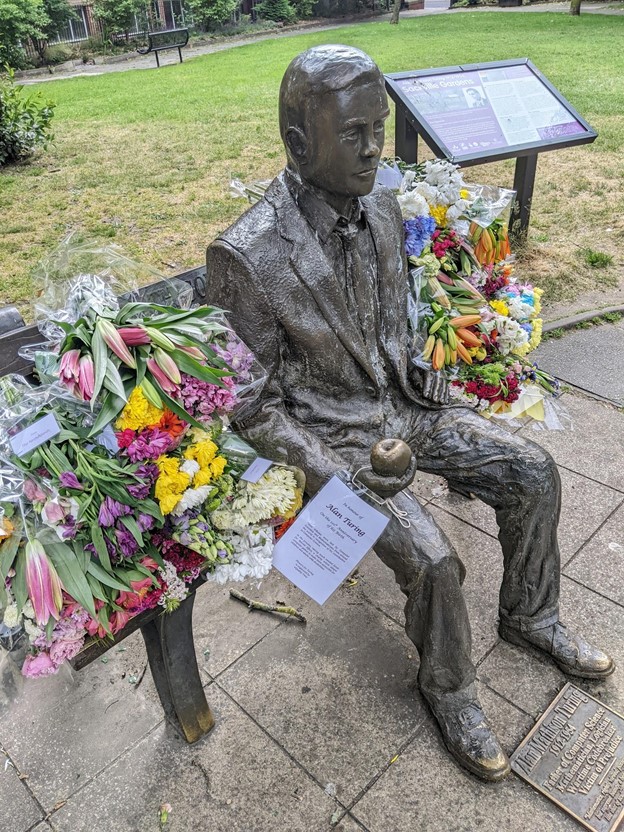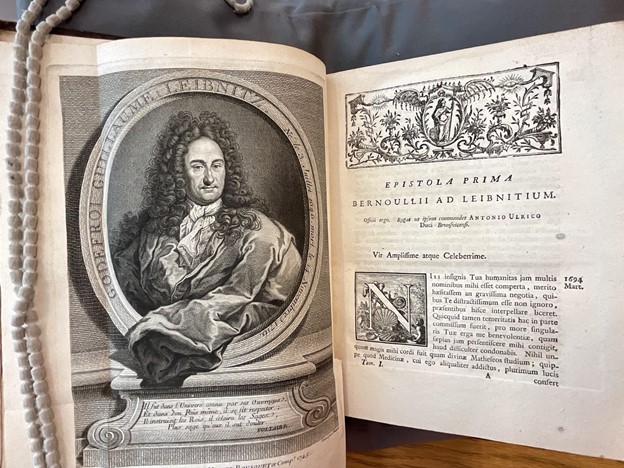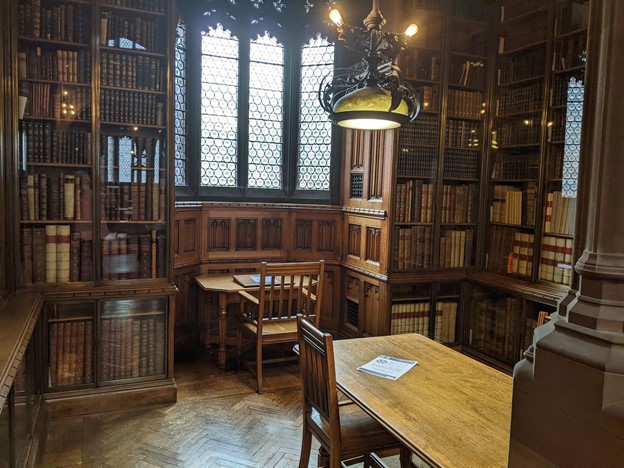
A quote from Abraham Pais, notable physicist and biographer of Albert Einstein and Niels Bohr serves as a foreword for the thesis and work during the research trip: “As often happens in times of great scientific upheaval, discovery does not mean understanding what has been discovered” (Pais, 1997).
The project starts with the premise that in addressing problems we have never seen before like the so-called wicked problems we can look at the History and Philosophy of Science to understand how we have faced similar situations where descriptions of the problem depend on perspectives, and existing theories cannot be used to understand the situation. From the preliminary work over the last two years, a pattern emerges to present the idea that some additions to the Body of Knowledge (BOK) occur through a process that results in concepts permeating language and expanding human understanding. A couple of examples of additions to knowledge following this process are the theory and concepts of Evolution and of Information. Most people have not read Charles Darwin’s or Claude Shannon’s writings, and yet, the ideas of evolution, bits of information and communication channels are used in fields as far apart from theoretical biology and telecommunications as sociology, economics, organisational behaviour or political science.
In my thesis I propose that addressing wicked-like situations has been successful when they are approached philosophically, and the ideas developed are not restricted within a specific discipline, have an epistemological objective and are multidisciplinary in their application. Three inventions are chosen as case studies in the description of the process: the Infinitesimal Calculus by Gottfried Leibniz, the Complementarity by Niels Bohr, and Artificial Intelligence by Alan Turing. In support of the thesis at the current stage, an objective for the trip was devised prior to the trip: To visit the archives of Leibniz, Turing and Bohr and examine primary sources in search of examples to support the arguments presented in the thesis and described in the introduction above. The trip was divided into three stages roughly equal in time length for the period between June 12 and July 13 2022.
- Hannover, Germany: first stage visiting the Leibniz Archive to study some of Leibniz Papers on the development of Infinitesimal Calculus. See examples of his communications with other thinkers regarding Calculus and its applications, particularly from the last 10 years of his life.
- Manchester, UK: second stage where I would visit the Turing Archive at the Main Library and the John Rylands Library, both at the University of Manchester (UoM), the Manchester Metropolitan University (Manchester Met) Library and associated buildings, and Chetham’s Library. The goals were to examine documents for texts and references associated with the development of ideas on Mechanical Intelligence (AI), and to examine examples from the 18th century regarding the spread of Calculus through educational and applications texts.
- København, Denmark: third and last stage where I would visit the Niels Bohr Archive at the Niels Bohr Institute of København University. The goal was to study Bohr’s manuscripts regarding the origin of complementarity and its continued development after its initial presentation in 1927.
Additionally, I was selected as one of eight finalists for Manchester Met’s Three Minute Thesis competition in 2022 and attended the final in June 2022. Although I did not win, having made it to the final eight was an honour, a source of satisfaction, and a refreshing validation of the interest and perceived value of my work for interdisciplinary academic research. The research at the different locations have produced a number of primary and secondary resources that will be used in different sections of the thesis to help develop arguments and provide examples of the ideas presented. As valuable as the identification of the sources are, and yet unexpected in its richness has been the interaction with the Historians at Hannover and Copenhagen. Our conversations have sharpened my own arguments at times, seen validation on some of the arguments, and on occasion, have made me see the value of building from the existing historiography and studies in the different environments.
Upon reflection at the end of the trip I realised that the experience was far, far more productive, helpful, and enriching than I hoped or dreamed it could be before going. The pieces and clues collected, by either suggestion or reflection have made the puzzle more clear. In an echo of the ideas presented in my thesis, my work during this transformational and immensely productive and enriching period began with a number of preconditions that stimulated and facilitated an integrative process of available ideas and partial views with insight and additional work to conceptualise a process the explains additions to the Body of Knowledge in certain cases. Once this concept is presented it generates further dialog and discussions that clarify, enhance and help understand and begins to expand through impromptu lectures and presentations. The ideas generated during the trip and afterwards do not allow me to unsee the additions to knowledge as described by the thesis. I am indebted to and deeply grateful for the support and help received.
Ernesto received a Research Support Award to go towards his research trips. He was also a finalist in the University’s Three Minute Thesis competition in 2022. To find out more about Research Support Awards, visit the Funding section in Moodle.






1 comment on “Research trip to the archives of Gottfried Leibniz, Alan Turing, and Niels Bohr”
Very interesting to read about your thesis research trip and the journey you are on. All the best!